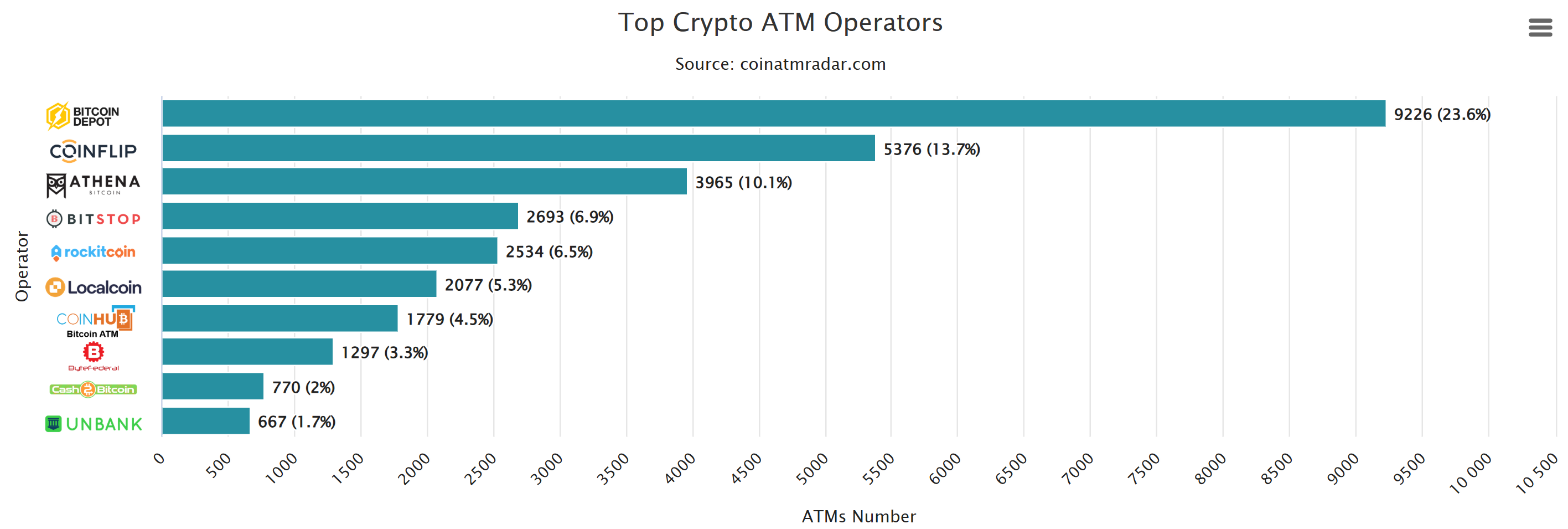
Crypto Dispensers, a company based in Chicago that operates Bitcoin ATMs, is evaluating a potential sale estimated at $100 million amid legal issues facing its founder related to accusations of money laundering.
In a press statement released on Friday, the company revealed that it had engaged advisors to assist with a ‘strategic review’ aimed at gauging buyer interest. This follows their shift in 2020 from physical ATMs to a focus on a software-centric model to address increasing fraud concerns, compliance obligations, and regulatory scrutiny.
CEO Firas Isa characterized the sale review as indicative of the firm’s next stage of growth. “Hardware showed us the ceiling. Software showed us the scale,” he commented.
The ATM operator may continue to operate independently, depending on the outcome of these discussions, and there’s no guarantee a sale will be finalized.
 Top 10 crypto ATM operators. Source: CoinATMRadar
Top 10 crypto ATM operators. Source: CoinATMRadar
CEO of Crypto Dispensers Faces Money Laundering Allegations
The review of the potential sale comes shortly after the US Department of Justice unsealed an indictment accusing Isa and the company of being involved in a $10 million money laundering operation.
According to prosecutors, from 2018 to 2025, Isa allegedly accepted proceeds from wire fraud and drug trafficking through the firm’s ATM network. They claim he converted these funds into cryptocurrency and transferred them to designated wallets to conceal their source, despite the firm having KYC (Know Your Customer) protocols in place.
Both Isa and Crypto Dispensers have pleaded not guilty to the charges of conspiracy, which could result in a federal sentence of up to 20 years. If found guilty, assets related to the alleged operation might be seized by the government.
Regulatory Crackdown on Crypto ATMs in the US
Crypto ATMs are under increasing scrutiny from US regulatory bodies and local authorities amid rising fraud concerns. The FBI documented almost 11,000 fraud reports linked to crypto kiosks in 2024, amounting to over $246 million, leading lawmakers to evaluate the anonymity of these machines and their role in promoting illicit activities.
Cities are implementing bans and stringent regulations. In Stillwater, Minnesota, officials banned crypto kiosks after multiple residents reported significant losses to scams, including cases involving fake PayPal ‘overpayments.’
Similarly, Spokane, Washington, enforced a citywide ban in June due to a surge in scams, labeling these machines as a ‘preferred tool for scammers.’
Other areas are opting for restrictions rather than outright bans. Grosse Pointe Farms, Michigan, enacted transactions limits—despite no active crypto ATMs—to protect its residents from potential fraud.


